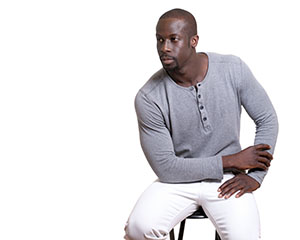Judge Rejects Joke Defense in Don Henley Trademark Case
Get Legal Help Today
Find the right lawyer for your legal issue.
Secured with SHA-256 Encryption
Mary Martin
Published Legal Expert
Mary Martin has been a legal writer and editor for over 20 years, responsible for ensuring that content is straightforward, correct, and helpful for the consumer. In addition, she worked on writing monthly newsletter columns for media, lawyers, and consumers. Ms. Martin also has experience with internal staff and HR operations. Mary was employed for almost 30 years by the nationwide legal publi...
Published Legal Expert
UPDATED: Jul 16, 2021
It’s all about you. We want to help you make the right legal decisions.
We strive to help you make confident insurance and legal decisions. Finding trusted and reliable insurance quotes and legal advice should be easy. This doesn’t influence our content. Our opinions are our own.
Editorial Guidelines: We are a free online resource for anyone interested in learning more about legal topics and insurance. Our goal is to be an objective, third-party resource for everything legal and insurance related. We update our site regularly, and all content is reviewed by experts.
UPDATED: Jul 16, 2021
It’s all about you. We want to help you make the right legal decisions.
We strive to help you make confident insurance and legal decisions. Finding trusted and reliable insurance quotes and legal advice should be easy. This doesn’t influence our content. Our opinions are our own.
On This Page
A California federal judge refused to dismiss a trademark infringement lawsuit based on a play on words referring to musician Don Henley of the Eagles.
Duluth Trading Co. ran ads for Henley shirts using the slogan “Don a henley, take it easy.”
“Take It Easy” was the Eagles’ first single, released in 1972. It reached number twelve on the Billboard Hot 100 chart. A 1977 performance can be seen here.
The History of the Henley
 Henley shirts, sold by a large number of companies, are named for the English town of Henley-on-Thames.
Henley shirts, sold by a large number of companies, are named for the English town of Henley-on-Thames.
A Henley shirt is a pullover without a collar, with a buttoned placket below the neckline. The shirts are commonly made out of stretchy fabric and were the traditional uniform worn by crew rowers in Henley-on-Thames.
Henley the musician sued Duluth Trading in October, claiming that the shirt ads exploited “the celebrity of Mr. Henley and the popularity of the Eagles’ hit record” and that they were a “clear and unwarranted violation” of Henley’s trademark and publicity rights.
The lawsuit charged that consumers who saw the ad would believe that Henley was associated with and/or endorsed Duluth Trading and its products.
Henley registered trademarks for his name with the US Patent and Trademark Office in the year 2000.
Henley’s complaint alleges causes of action for federal trademark infringement, false endorsement, and violations of California and common law publicity rights.
Can’t You Take a Joke?
Duluth Trading tried to have the case dismissed, saying that the ads were “obviously a joke”:
It is self-evident that the use that was made of Mr. Henley’s name was a joke intended to highlight the coincidence that [he] shares his last name with a ubiquitous casual shirt and that his first name means “to wear.”
Duluth Trading also asserted that the reference to Henley was “an expression of free speech which uses portions of Mr. Henley’s name in a transformative nature invoking the protection of the First Amendment of the United States Constitution.”
Fair Use and Naked Barbies
Many uses of third-party intellectual property are permitted under the doctrine of “fair use.” Whether a use is “fair” depends on a number of factors, including whether a use is “transformative.”
Under intellectual property law, a “transformative” use of intellectual property is distinguished from the use that is merely “derivative.”
For example, Utah artist Tom Forsythe is known for his photographic works that incorporate Barbie dolls – sometimes naked and in suggestive poses. Mattel, the company that makes Barbie dolls, sued Forsythe for copyright and trademark infringement. The Ninth Circuit Court of Appeals ruled that Forsythe’s art counted as a transformative “fair use” of Mattel’s intellectual property.
However, the Ninth Circuit (which includes California) has also ruled that the First Amendment doesn’t allow a retailer to use the name of a celebrity to sell goods unrelated to that celebrity.
The judge in the Henley case ruled that Duluth Trading had failed to establish that its use of Henley’s name was sufficiently transformative to be considered a fair use. This doesn’t mean that Henley has won. The parties may settle, or the case may proceed to trial.
If you want to refer to a celebrity in your ads…
If you’re considering depicting or referring to a celebrity in the advertising for your business, it’s best to consult with an intellectual property or advertising attorney first.
Find the right lawyer for your legal issue.
Secured with SHA-256 Encryption
Mary Martin
Published Legal Expert
Mary Martin has been a legal writer and editor for over 20 years, responsible for ensuring that content is straightforward, correct, and helpful for the consumer. In addition, she worked on writing monthly newsletter columns for media, lawyers, and consumers. Ms. Martin also has experience with internal staff and HR operations. Mary was employed for almost 30 years by the nationwide legal publi...
Published Legal Expert
Editorial Guidelines: We are a free online resource for anyone interested in learning more about legal topics and insurance. Our goal is to be an objective, third-party resource for everything legal and insurance related. We update our site regularly, and all content is reviewed by experts.
